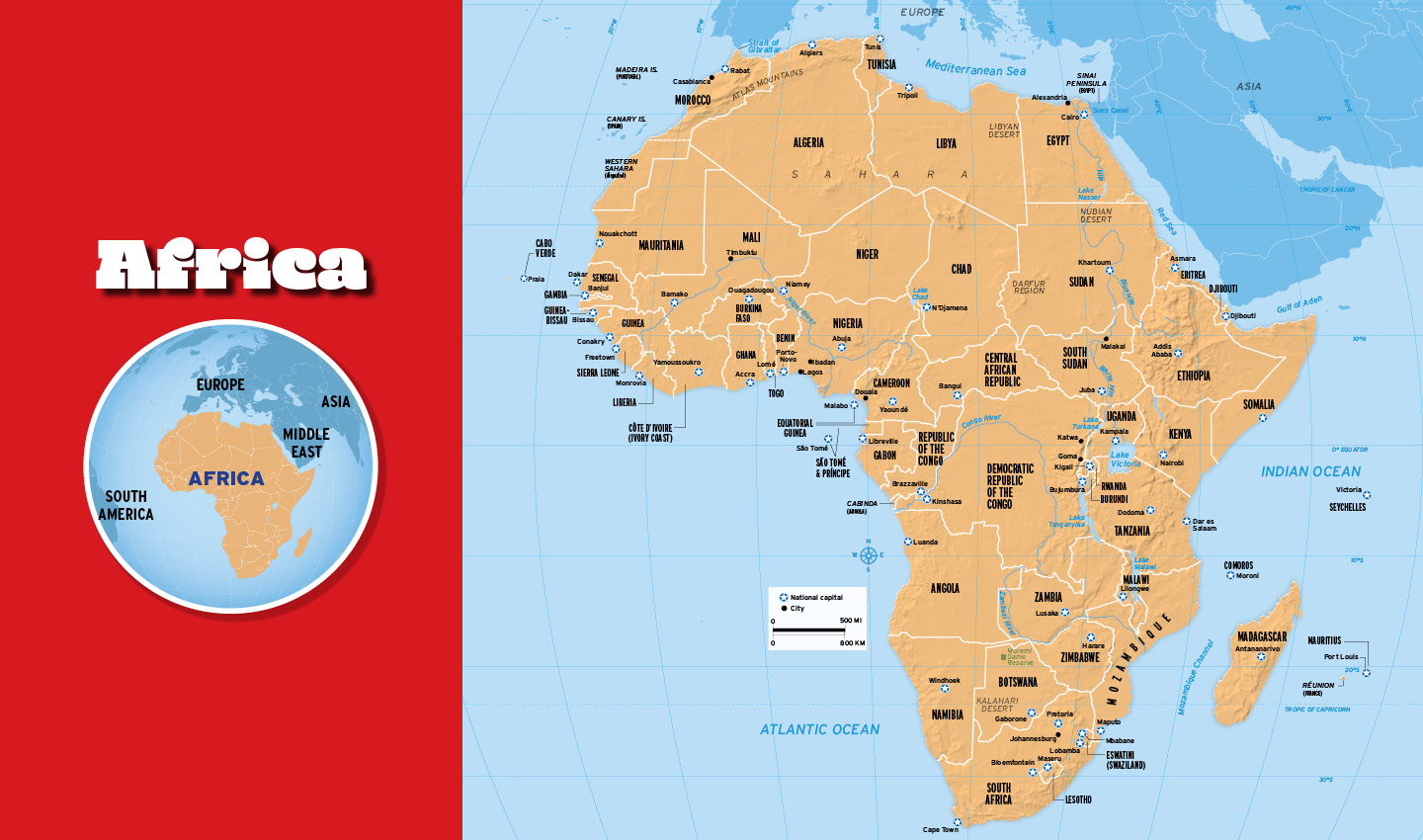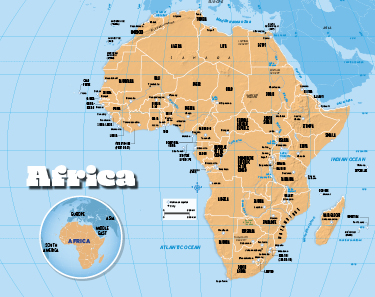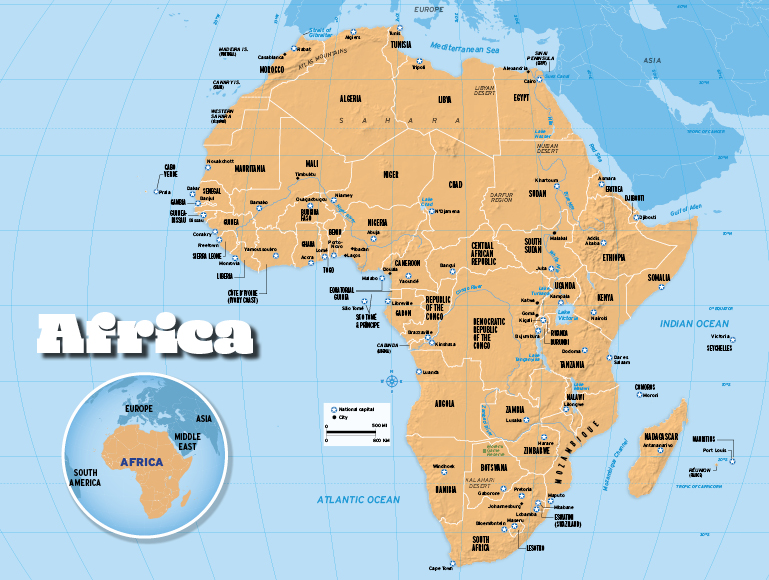Despite a peace deal signed in early 2019 that officially ended five years of fighting between the government and opposition forces, the humanitarian situation in South Sudan remains dire. Violence has driven some 4.5 million people from their homes, and atrocities continue, including mass shootings and the burning of entire villages. Less than a decade after gaining independence from Sudan, half of South Sudan’s 13 million people face extreme hunger.



Mapping Specialists/Jim McMahon
In the News, 2020: AFRICA
Justin Lynch/AFP/Getty Images
South Sudanese civilians flee fighting in the northeastern town of Malakal in South Sudan.
SOUTH SUDAN
Jekesai Njikizana/AFP/Getty Images
Robert Mugabe before his ouster in 2017
ZIMBABWE
In September 2019, Zimbabwe’s founding president and longtime strongman leader, Robert Mugabe, died at the age of 95. Until 2017, Mugabe had been his country’s only leader since its independence in 1980. But Mugabe presided over Zimbabwe’s terrible economic decline and had been accused of human rights abuses. In 2017, Mugabe was ousted by army officers in a coup, but the country has yet to make a full return to democracy. Will Mugabe’s death finally allow the country to begin a new chapter?
Pete Oxford/Minden Pictures
A group of elephants at the Moremi Game Reserve in Botswana
ELEPHANT POACHING
Fifteen years ago, there were half a million elephants in Africa. But illegal hunting, known as poaching, killed more than 100,000 of them between 2006 and 2015 and continues to take a toll, according to the International Union for Conservation of Nature. Poachers kill elephants for their tusks, which are made of ivory that’s in high demand in China. Now poaching is even on the rise in Botswana, long considered a safe haven for African elephants.
